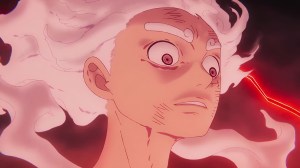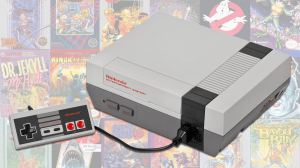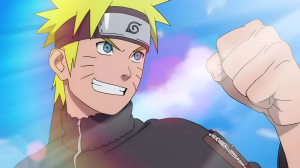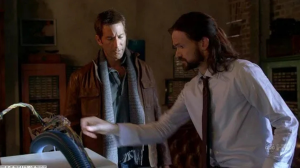Throughout the ’80s, the world of horror was dominated by slasher films, most of which featured a masked murderer wreaking havoc on suburban coeds, resulting in a handful of standout films but mostly countless forgettable and formulaic experiences. With 1996’s Scream, writer Kevin Williamson and director Wes Craven aimed to stand out from the crowd by delivering a story featuring characters who were obsessed with slashers, using what they’ve learned to not only commit crimes but also avoid being victims. Randy Meeks specifically, played by Jamie Kennedy, helped lay down the rules of who would survive and who would be doomed in the narrative, based on the established conditions from iconic slashers. Scream is out now on 4K Ultra HD Blu-ray and Digital 4K.
Videos by ComicBook.com
The film is described, “After a series of mysterious deaths befalls their small town, an offbeat group of friends led by Sidney Prescott (Neve Campbell) becomes the target of a masked killer. As the body count rises, Sidney and her friends turn to the ‘rules’ of horror films to help navigate the real-life terror they’re living in.”
ComicBook.com caught up with Kennedy to talk about his experience making the film, fan theories, and why Randy’s death in Scream 2 still resonates with audiences.
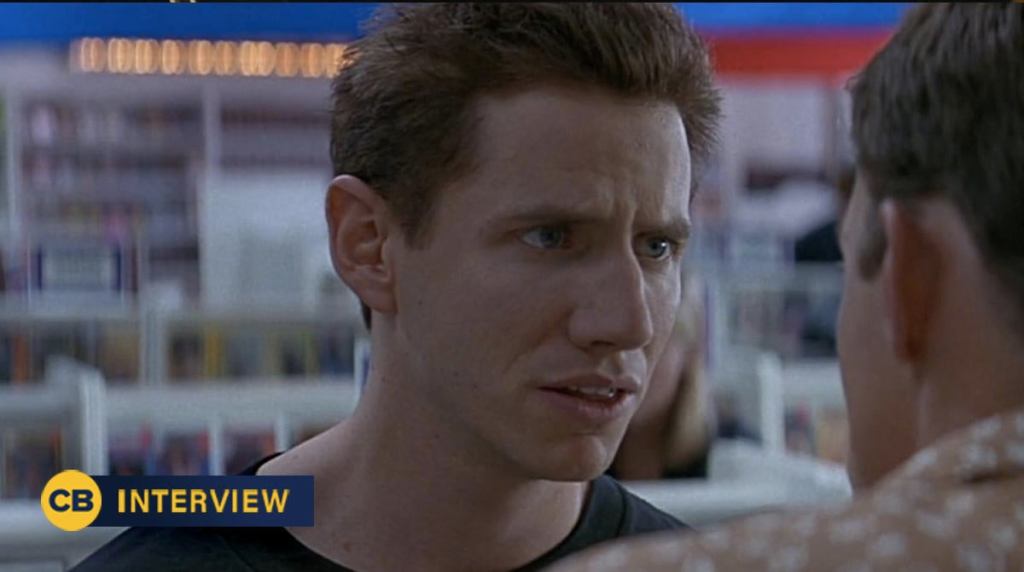
ComicBook.com: Going back to the mid-’90s when you were first reading the script, when this first came about, could you tell right away that this was going to be something different? You probably didn’t think 25 years later you’d be doing interviews about it, but even at the time, did you know it was definitely going to be something different for horror?
Jamie Kennedy: Definitely thought it was going to be something different. The genre was sleeping at this moment, and I just thought this was so unique, this is so cool. It had this unique, new voice with Kevin Williamson, who embodied a lot of the different characters in his writing. He probably was, obviously, a person who consumed horror movies, so he knew how to write it. Then that was incredibly … it was a new voice. Then Wes, to be that steady hand who wasn’t easy to get in the beginning, he didn’t want to do it. He wanted to leave the genre and thank God we had him because it was like we had a know-how hand with a new voice. It was just a great mix.
Speaking to that idea of how the genre at the time just felt so tired and overdone, there’s so many Jasons and Freddys and Michael Myers, there’s just so much generic stuff. Were you apprehensive when the idea came about and you held off until you actually read the script to determine your interests?
Oh, no, I was always desperate. You got to remember, I was an unknown actor, so I auditioned, I would audition for anything. I just did a hamburger commercial before this. And so I was like … And this was a huge role for me and a lot of dialogue and amazing, unique dialogue. So I was like, “How can I do this?” And so I was like, “Oh, my God, I’ve got to do this so bad.” So no, I thought it was fantastic and the way it was written, it was like, “I’m doing it.”
You got to work with Wes on two sequels so you spent a good chunk of time with him. What do you think would surprise audiences to learn about Wes and the kind of guy that he was?
I think just how chill he was, you know what I mean? He’s a real cerebral guy, and he’s got these people on there, these wild, emotional maniacs that he’s filming, but yet he’s always in charge, the same, even keel, never really gets mad. If he laughs, he chuckles. He’s very even keel. And I think one of his, I don’t know his upbringing, but I think he was more, he might’ve been brought up in a religious background, I don’t know. I think he got to express himself through his movies of how he wanted to be in life, but he was already shaped as a person, so he could be wild and crazy in his movies.
Obviously you were excited for the movie and felt like it was going to be something different, but do you remember when it dawned on you just how game-changing it was for the genre?
When I read the script, I thought it was very unique and I thought this is really good, because there were a lot of action movies at the time, and there’s a ton of extra exposition. This didn’t have anything, there was no fat, the script left you wanting more. The commenting, the metaness of it, then all the different pieces that came together, Courtney [Cox] and then Neve, Kevin, Wes, and it was just unique people all around. It was literally lightning in a bottle.
Since there are so many devoted fans over the years, people with tattoos of the film and such, do you happen to have a most memorable encounter with a fan?
Well, there’s a lot, but I could say most recently there’s two big ones, there was a woman that came … she says, “I’m going to get a tattoo with your signature on it with your character name. Could you draw it on me?” And I was like, “This is a huge responsibility.” And she’s like “No.” So I had to hold her wrist and make my signature and then she did it. So that’s one and I’ve definitely seen more tattoos of Scream and stuff.
Then, recently, at this convention, this other girl came up and she just was crying and she’s just, “Can you just sign…?” and just tearing up. Then I was like, “Are you okay?” And she’s like, “I can’t.” And she ran away. She said, “I just love the movie and your character so much” and just crying. So it definitely has an effect on people, that is for sure.
That shows the range of fans, too, with some getting a tattoo of your signature and others being so emotionally overwhelmed that they can’t interact with you. Of all the interactions, is there a question you get asked more than anything else?
I think the biggest question is, there’s a couple, like, “What was it like to work with Wes Craven? How do you feel about your death?” I think those are two of the biggest ones. I think there are other ones, like, “Is there a way that your character could come back?” That’s a big one. I get asked those all the time.
I actually spoke with Kevin a couple of weeks ago and he says one of the things he gets asked the most is, “Is Randy really dead?”
He must really hate that.
For you, they made the fourth movie without you, they’re coming out with a fifth movie, and just the twisted nature of the series, people think that it’s possible. If they called you up and said, “Oh, actually, we do want you back,” would you rather stick with your satisfying ending? Or would you say, “Yes, absolutely. I will do anything to come back to stay involved in this mythology,”?
I don’t know. If I was in the mythology, I think my mythology is strong because I’m not in it, you know what I mean? So if I came back, it could bastardize it. But if there was a plausible way that wouldn’t piss off the audience, it might be interesting to entertain.
But, as of right now, I believe I’m deader than dead, and I think that’s what makes it good is the fact that you are dead and that’s why it’s strong because you died. You were one of the good ones and maybe you shouldn’t have went, but that’s what life is. It’s pain. Sometimes things happen, you can’t explain. And that’s why it resonates so much with people because of that.
That’s exactly what Kevin says, if your performance in your character wasn’t so strong, people wouldn’t care as much. So if you came back that would water down some of Randy’s legacy and his wisdom that he’s passed on. Has there been a theory that you’ve heard, like, “Well, technically Randy could have done this and then led to this” that you’ve thought, “Oh, you know what? That theory, I am interested in that,” or still just, “No,”?
There’s tons of that. There’s the “Randy’s going to come back because he masterminded it.” There’s “Randy never died because he knew he would get killed, so he got out before he did, but then he was rude to his friends by not helping them.” Then, he’s maybe helping behind the scenes and there’s “he’s got a twin brother,” then there’s an alternate universe or there’s “Randy’s going to be in the Stab series.” There’s a ton of stuff that could happen, but those are all theories, I don’t know. I do think it’s so impactful that he’s dead and you want him, but maybe he comes back as Obi-Wan Kenobi in a weird avatar.
Imagine, if for 25 years it’s been grounded in reality, and then, all of a sudden, “Hey, guess what? The Force exists.”
Exactly, the Force.
Coming soon to Disney+, Randy-Wan Kenobi.
It could be a What If…?
There’s been so many memorable deaths over the years, do you happen to have a favorite death scene from the series?
I think Randy’s is possibly the most shocking. And I think that a cool one was Rose [McGowan] caught up in the … Somebody told me the name of it today. We said it was the “pet door,” but they called it the “cat flap.” And I think Rose getting caught up in the cat flap was pretty interesting. People love that one. In fact, I saw a Halloween costume of that. Some guy, I don’t know how he did it, but it was like dangling. That’s pretty cool.
And especially what’s so interesting is how Randy’s death is memorable, but you don’t see it.
That’s the one thing, you just said it. You don’t see it. Did you ever see it? You saw the aftermath. But did you see it? That’s a good point.
Scream is out now on 4K Ultra HD Blu-ray and Digital 4K.
This interview has been edited for length and clarity. You can contact Patrick Cavanaugh directly on Twitter.





